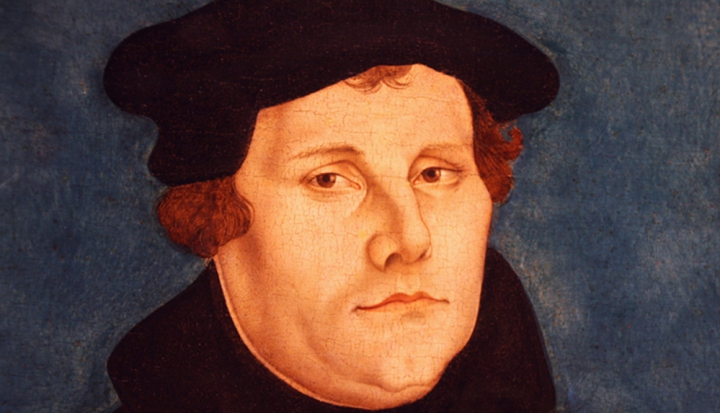On October 31, 2016, the same day Martin Luther nailed his 95 Theses to the church door in 1517, the Lutheran World Federation began a yearlong commemoration of the 500th anniversary of the Protestant Reformation. To recognize the Lutheran Church and to affirm the Catholic Church’s continuing resolve to seek full Christian unity, Pope Francis participated in a Lutheran-Catholic liturgy in Lund, Sweden. However, his presence was not without controversy. Factions on both the Lutheran and Catholic sides raised concern that the pope’s participation could invite confusion, pluralism, relativism, or dilute doctrine.
Among Catholics, Martin Luther has long suffered a negative reputation for fracturing the unity of the western church, while mainline Protestants historically have tended to view the Reformation as fundamentally positive. Today, however, many Protestant denominations recognize the tragic dimensions of the Reformation as well. Consequently, unambiguous language of celebration or jubilee was discouraged during preparations for the 500th anniversary; commemoration is the word of choice. If Protestants can accept mourning as part of the Reformation’s legacy, might Catholics accept celebration as an aspect as well?
Despite its reputation, the Reformation did not divide the unity of the Catholic Church. The late-medieval western church was diverse and already internally divided in significant ways well before the Reformation. Martin Luther himself questioned the existence of the unity he was accused of fracturing. Schools competed and religious orders clashed (often to the point of violence), the western schism divided loyalties and conceptions of authority, and support for Roman centralization conflicted with local autonomy and diversity of practice in Spain, France, Bavaria, and beyond.
By the 16th century, theologians and religious scholars had already leveled several significant critiques of medieval Christianity. The Council of Trent, called in response to the Reformation decades later, initiated the Catholic Counter-Reformation by unifying Catholicism and ordering Catholic practice. Modern Catholics often retroactively project this post-Tridentine Catholic unity as the context for the Reformation. But in reality, the Reformation both precipitated the end of medieval Christendom and sparked reforms that are foundational to modern Catholicism.
The Reformation is also the source of religious identity for many mainline Protestant communions. In the 20th century, the ecumenical vision of the Catholic Church changed: Protestants are no longer regarded as separatists but instead as fellow Christians who are signs of God’s active grace. Present Catholic ecumenical efforts seek to discover God’s grace among Christian traditions while moving toward unity through mutual understanding.
The Catholic-Lutheran dialogue has recently produced notable documents, while monumental questions of shared communion and structural unity await serious discussion. At this historical moment, it seems, celebrating the faith incarnate in fellow Christians and mourning the divisions within Christianity are not incompatible, rather both are products of seeking unity and understanding within a divided Christianity.
This article also appears in the February 2017 issue of U.S. Catholic (Vol. 82, No. 2, page 49).
Image: via Wikimedia Commons















Add comment